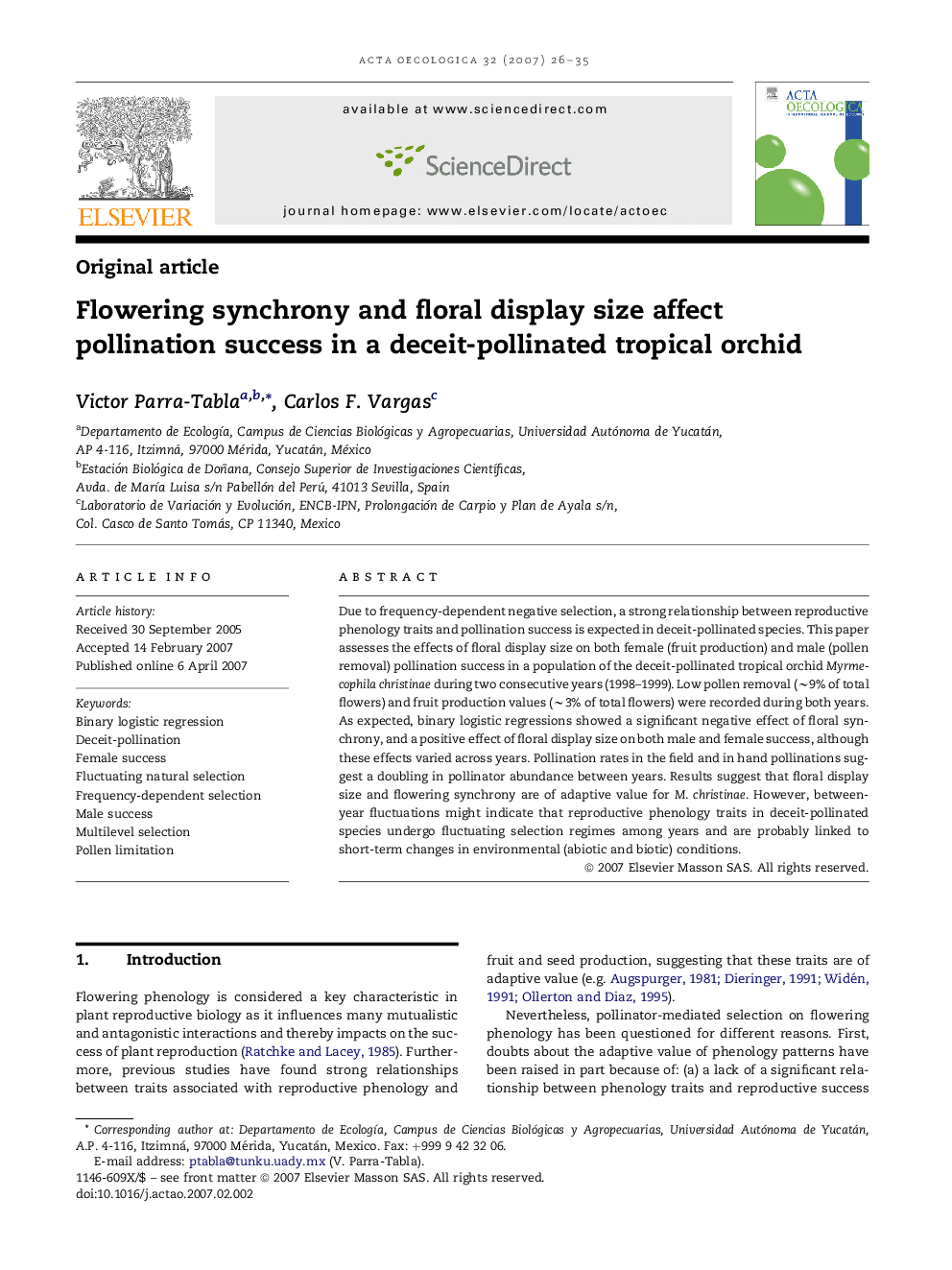| Article ID | Journal | Published Year | Pages | File Type |
|---|---|---|---|---|
| 4381614 | Acta Oecologica | 2007 | 10 Pages |
Abstract
Due to frequency-dependent negative selection, a strong relationship between reproductive phenology traits and pollination success is expected in deceit-pollinated species. This paper assesses the effects of floral display size on both female (fruit production) and male (pollen removal) pollination success in a population of the deceit-pollinated tropical orchid Myrmecophila christinae during two consecutive years (1998-1999). Low pollen removal (â¼9% of total flowers) and fruit production values (â¼3% of total flowers) were recorded during both years. As expected, binary logistic regressions showed a significant negative effect of floral synchrony, and a positive effect of floral display size on both male and female success, although these effects varied across years. Pollination rates in the field and in hand pollinations suggest a doubling in pollinator abundance between years. Results suggest that floral display size and flowering synchrony are of adaptive value for M. christinae. However, between-year fluctuations might indicate that reproductive phenology traits in deceit-pollinated species undergo fluctuating selection regimes among years and are probably linked to short-term changes in environmental (abiotic and biotic) conditions.
Keywords
Related Topics
Life Sciences
Agricultural and Biological Sciences
Ecology, Evolution, Behavior and Systematics
Authors
Victor Parra-Tabla, Carlos F. Vargas,
